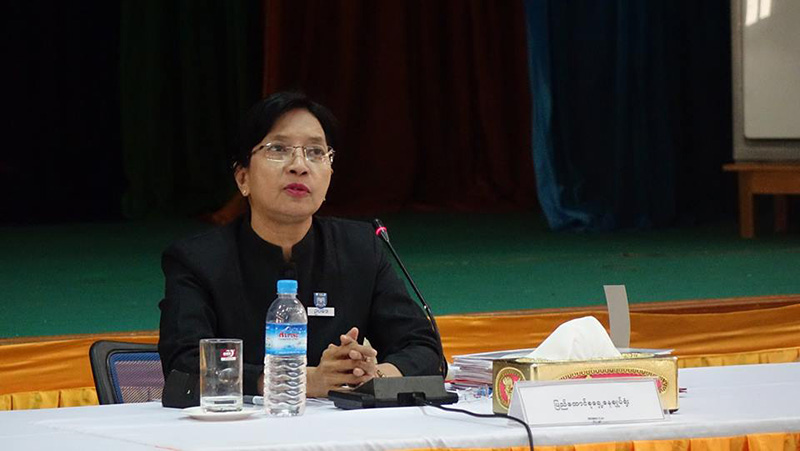The Attorney General’s Office in Burma has recommended amending a controversial law that currently denies bail to anyone accused of online defamation.
Nu Nu Yin, permanent secretary of the Attorney General’s Office, told DVB that the Ministry of Transportation and Communication had reached out to her office, suggesting revisions to article 66(d) of the Telecommunications Law, which many observers say has been used summarily to incarcerate dozens of government or military critics.
Under the chapter on “Offences and Penalties” of the Telecommunications Law, which was passed in 2013, article 66(d) stipulates a jail term of up to three years for those convicted of “Extorting, coercing, restraining wrongfully, defaming, disturbing, causing undue influence or threatening any person by using any Telecommunications Network.”
[related]
Critics say the terminology is too wide-ranging and can be manipulated to encompass any comment posted on the internet, including media reports, which offend anyone in any perceived way.
Civil society groups in Burma and abroad have called for the defamation provision to be abolished.
“The ministry asked for our recommendations on a draft bill with amendments to this article,” said Nu Nu Yin of the Attorney General’s Office. “One of our recommendations is that persons accused under article 66(d) should be eligible for bail in accordance with the Code of Criminal Procedures.
“But this is only a draft bill at the moment,” she added.
The next step will be to hand the draft bill suggesting amendments to the Telecommunications Law to the executive branch of the government, which could in turn raise the motion for debate in the Union Parliament.
Nay Phone Latt, a renowned blogger in Burma who was once jailed for defamation, but who is now an MP in the Rangoon regional parliament, has suggested scrapping article 66(d). He said it has been used consistently to threaten people, silence critics and intimidate the public from expressing their opinions.
Read more about the controversy surrounding article 66(d) HERE.



